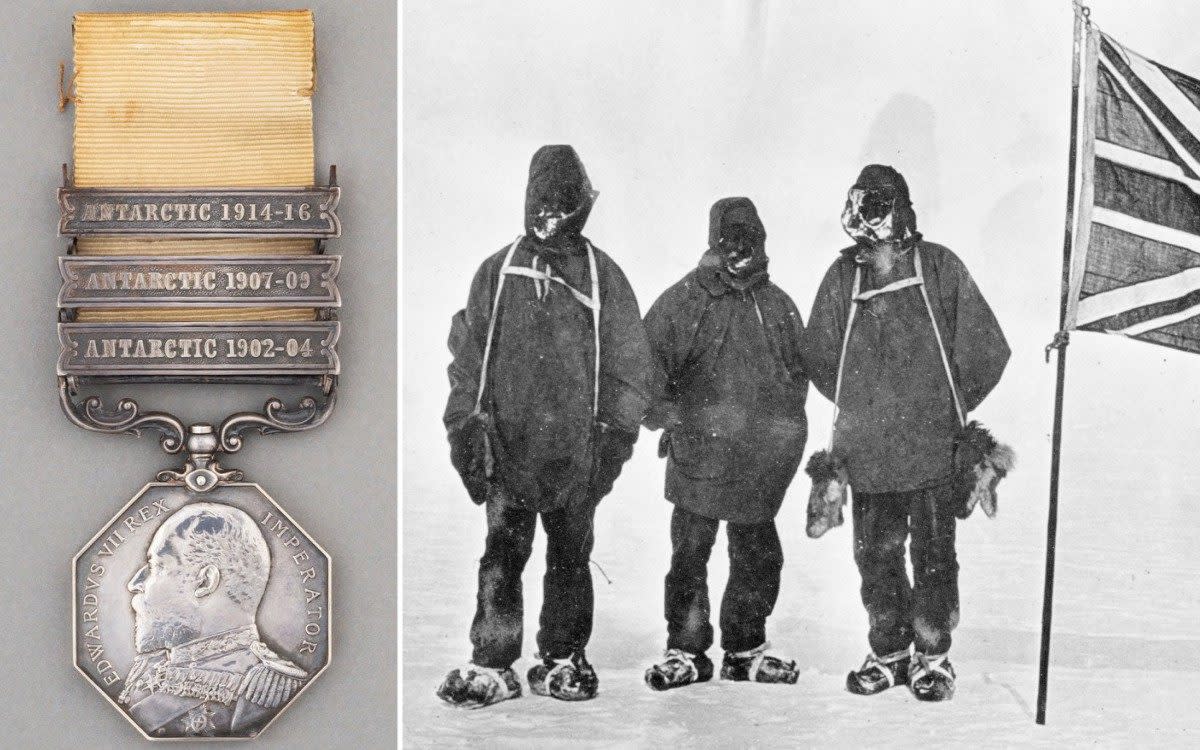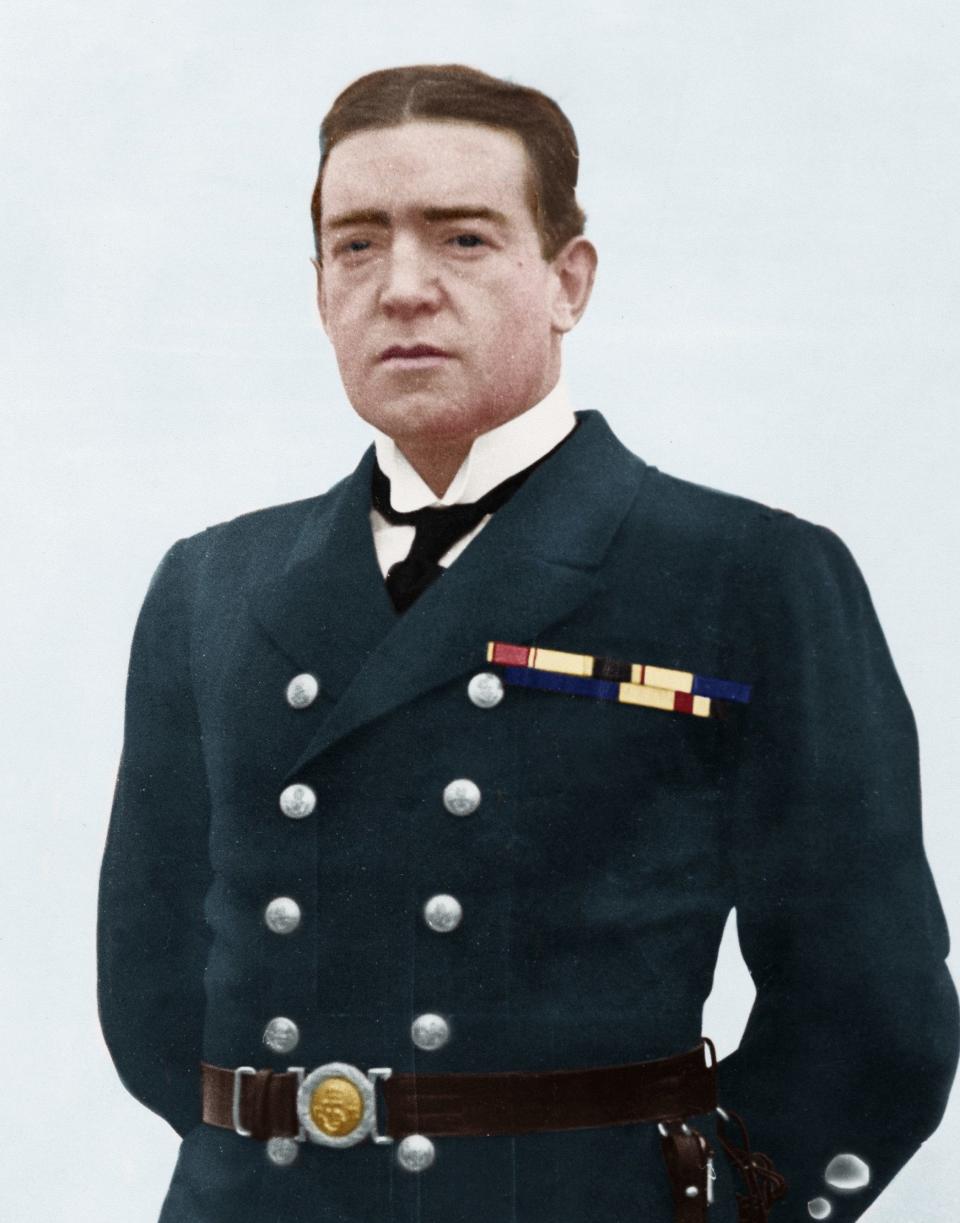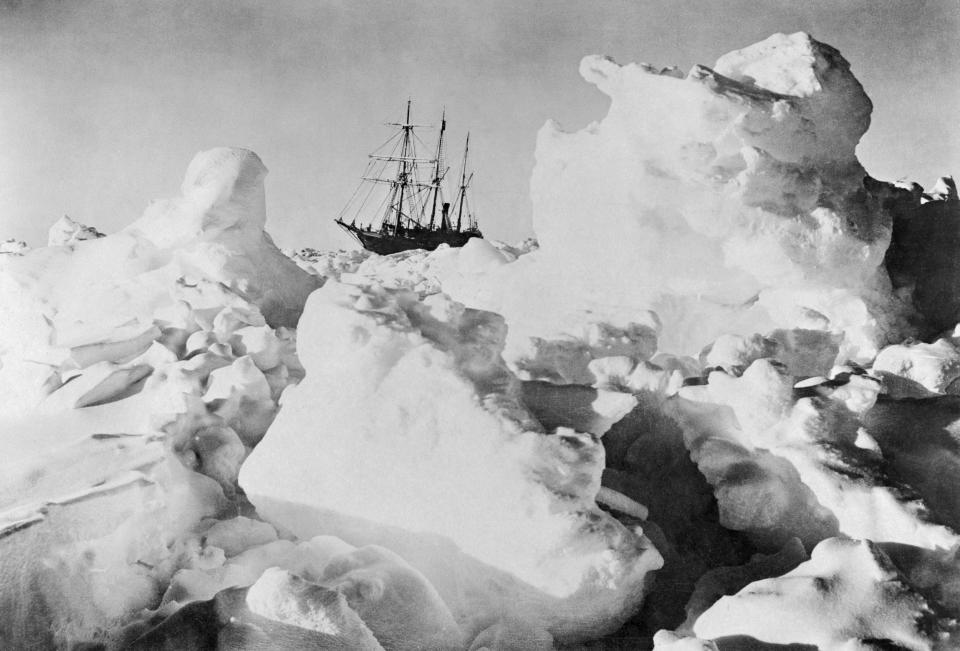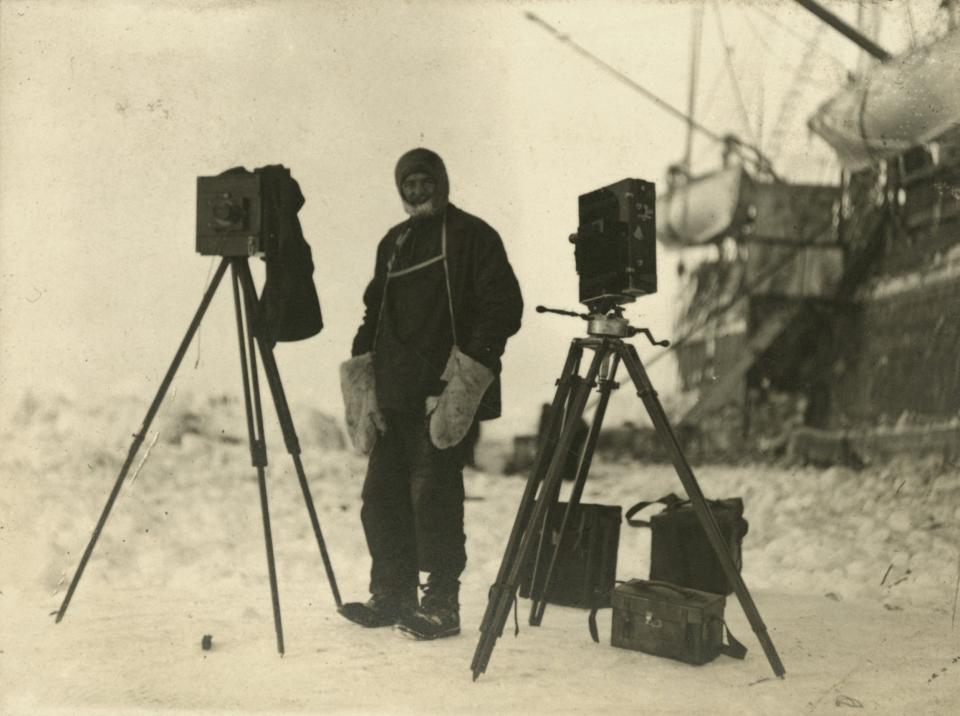Shackleton’s expeditions branded ‘imperialist’ by buyer trying to ship explorer’s medal abroad

- Oops!Something went wrong.Please try again later.
Ernest Shackleton’s expeditions were feats associated with “imperialist expansionism”, the buyer of the explorer’s Polar Medal has argued in a bid to take it overseas.
A foreign collector made the submission after ministers tried to block export of the £1.76 million medal, awarded to the hero known for saving his stranded Antarctic crew in extreme conditions.
The anonymous buyer argued that the honour was simply a “relic” of a colonial age in an effort to persuade ministers that it was not important enough to Britain for politicians to keep it in the country.
The Department for Digital, Culture, Media and Sport is in a race against time to find a British buyer to put up nearly £2 million needed to outbid the foreign buyer and keep Shackleton’s medal in the UK.

In documents seen by The Telegraph, the buyer of the explorer’s Polar Medal questions the criteria for keeping it in the UK, namely whether it is “closely connected with our history and national life”.
The buyer claims it is not, writing: “It is a relic of the now distant age of our imperial expansionism, awarded to an Anglo-Irish explorer, and so probably less ‘closely connected’ now, over a century after its recipient’s exploits, than it was in its own time.”
They further claim that it is not of aesthetic value, and that there are other Shackleton artefacts that are publicly accessible, arguing that taking the medal overseas does not fall foul of criteria ministers use to make decisions on barring the export of valuable objects.
These claims were countered by the Government’s art advisers, the Reviewing Committee on the Export of Works of Art and Objects of Cultural Interest (RCEWA).

The group told the buyer that the “period of polar exploration” in which Shackleton took part “should be viewed separately to colonialism and be seen in the context of the advancement of natural science research”.
The British Museum’s Keeper of Coins and Medals, Tom Hockenhull, objected to the medal leaving the UK, while the anonymous buyer claimed that it was not sufficiently important to be barred from export.
The RCEWA ruled that the piece met the criteria of importance for staying in the UK, and Lord Parkinson, the arts minister, announced a bar on its export.
However, Lord Parkinson and the DCMS now have a matter of months to find a suitable British buyer, or the medal could still leave UK shores by default.
Lord Parkinson previously said of the medal: “The admiration and interest which Shackleton’s exploits inspired continues to this day, so it is right that this medal – a recognition of his immense contribution to polar exploration – should be saved for the nation so that it can continue to inspire the public for many years to come.”
Shackleton took part in three expeditions to the Antarctic, including the Imperial Trans-Antarctic Expedition of 1914 to 1917, in which his ship The Endurance was lost to sea ice, and the crew forced to sail to Elephant Island in open boats.
Shackleton then sailed 720 nautical miles with select crewmates and climbed the mountains on the island of South Georgia in order to successfully seek help.
The explorer had received the Polar Medal for journeying to the Antarctic with Robert Falcon Scott in 1904, and his subsequent adventures earned additional notches on the silver badge bearing a portrait of Edward VII.
Shackleton’s medal appears to have been in the hands of family members following his death aged 47 while sailing to the Antarctic in 1922, until in 2023 experts were informed that a private sale to a foreign buyer had been agreed.
The British Museum’s Keeper of Coins and Medals, Tom Hockenhull, objected to the medal leaving the UK, while the anonymous buyer claimed that it was not sufficiently important to be barred from export.

The RCEWA ruled that the piece met the criteria of importance for staying in the UK, and Lord Parkinson, the arts minister, announced a bar on its export.
However, Lord Parkinson and the DCMS now have a matter of months to find a suitable British buyer, or the medal could still leave UK shores by default.
Lord Parkinson previously said of the medal: “The admiration and interest which Shackleton’s exploits inspired continues to this day, so it is right that this medal – a recognition of his immense contribution to polar exploration – should be saved for the nation so that it can continue to inspire the public for many years to come.”

